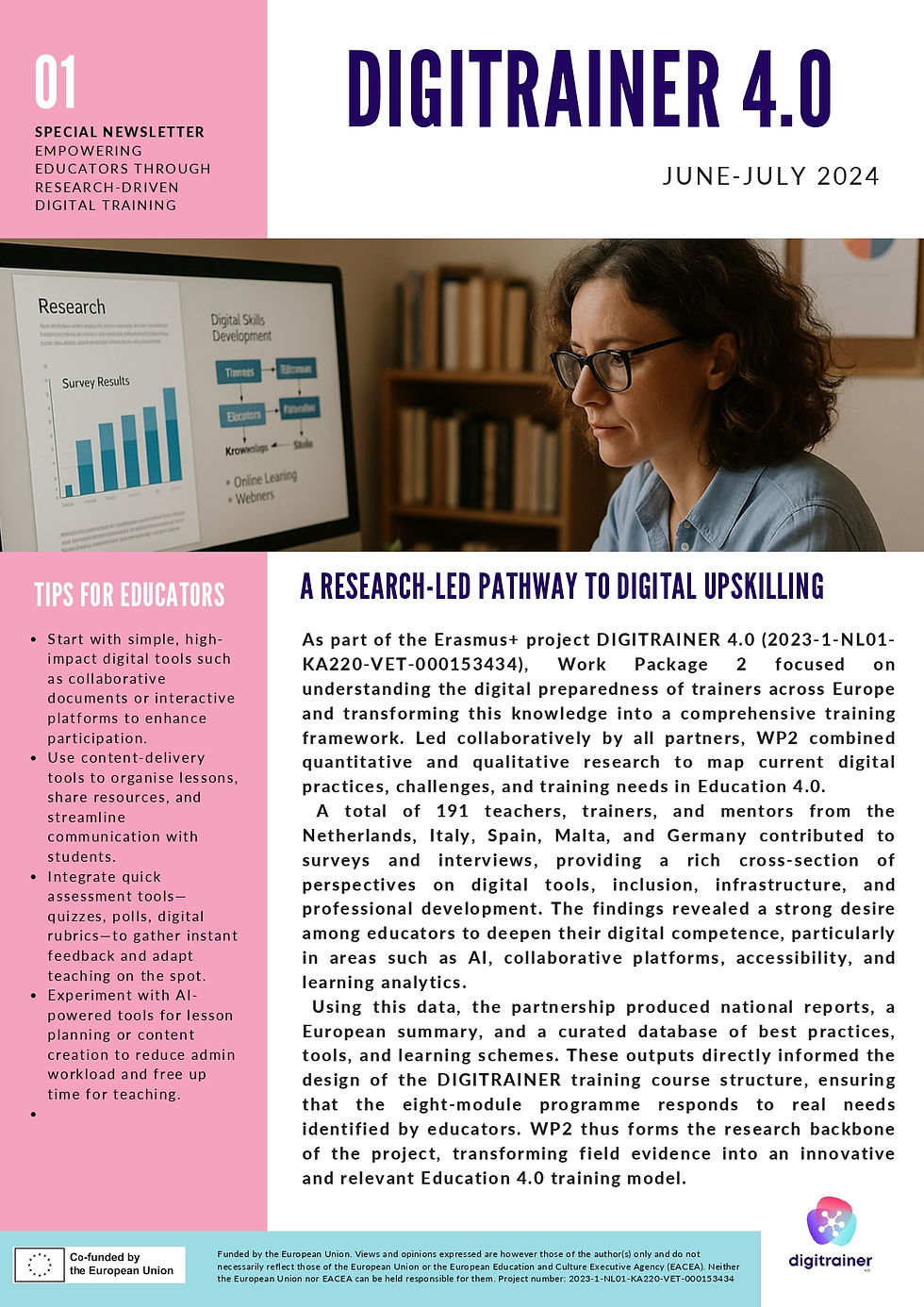Innovative pedagogies in Education 4.0: a necessary transformation
- Dideas Group
- Jun 9, 2025
- 2 min read
In the midst of the digital transformation and rapid technological advances, Education 4.0 has emerged as a response to the challenges and opportunities of today’s society. It's not just about integrating technology into classrooms; it’s about rethinking educational methodologies to meet the new dynamics of knowledge, work, and community life. In this context, innovative pedagogies play a central role by making learning more personalized, inclusive, collaborative, and continuous.
Personalized and Self-Paced Learning
One of the key features of Education 4.0 is the shift away from standardized teaching models, which have historically treated all students the same, without acknowledging their individual differences. Today’s innovative pedagogies focus on personalized learning, tailored to the needs, interests, abilities, and learning pace of each student.
With digital tools such as adaptive platforms, artificial intelligence, and learning analytics, educators can now design unique learning pathways for every student, allowing them to move at their own pace, review concepts as needed, and explore topics that spark their curiosity. This flexibility leads to greater motivation and significantly improved learning outcomes.
Accessible and Inclusive Learning
Education 4.0 also breaks down the physical and social barriers that have long limited access to education. Now more than ever, it is essential to ensure that everyone can learn, regardless of their geographic location, economic status, abilities, or personal circumstances.
Through the use of accessible technologies, open digital content, and online learning platforms, we are expanding the reach of education and creating more equitable and inclusive environments. Innovative pedagogies focus on designing learning experiences that address diversity, encourage active participation, and promote truly universal education.
Problem-Based and Collaborative Learning
Another key transformation is the shift from a traditional content-delivery approach to one where students learn by doing. Problem-Based Learning (PBL) and Project-Based Learning (PjBL) are examples of methodologies that engage students in real-world situations, fostering critical thinking, creativity, and problem-solving.
These approaches also encourage collaborative work, a vital skill in today's world. Working in teams, students not only gain knowledge but also develop social skills, leadership, communication, and conflict resolution. Moreover, this method better mirrors the work and social environments they will encounter in the future.
Lifelong and Student-Driven Learning
Education can no longer be confined to a single phase of life. In a rapidly changing world, people must constantly update their knowledge and skills. Education 4.0 supports a lifelong learning model in which students—from an early age—take an active and autonomous role in their education.
Innovative pedagogies nurture this mindset by empowering learners to take ownership of their learning process, seek out new sources of knowledge, and remain in a state of continuous growth. This transforms education into a lifelong tool for both personal and professional development.
Education 4.0 challenges us to profoundly rethink the role of pedagogy in today’s world. Innovative pedagogies don’t just adapt to technological changes—they transform the way we understand learning: making it more human, more inclusive, more collaborative, and more flexible. This is not a passing trend, but a necessary evolution to prepare new generations for a complex, fast-changing, and interconnected world.
Successfully implementing these pedagogies requires commitment, teacher training, appropriate resources, and a clear vision for the future. But the benefits are clear: more meaningful, equitable, and transformative education.





Comments